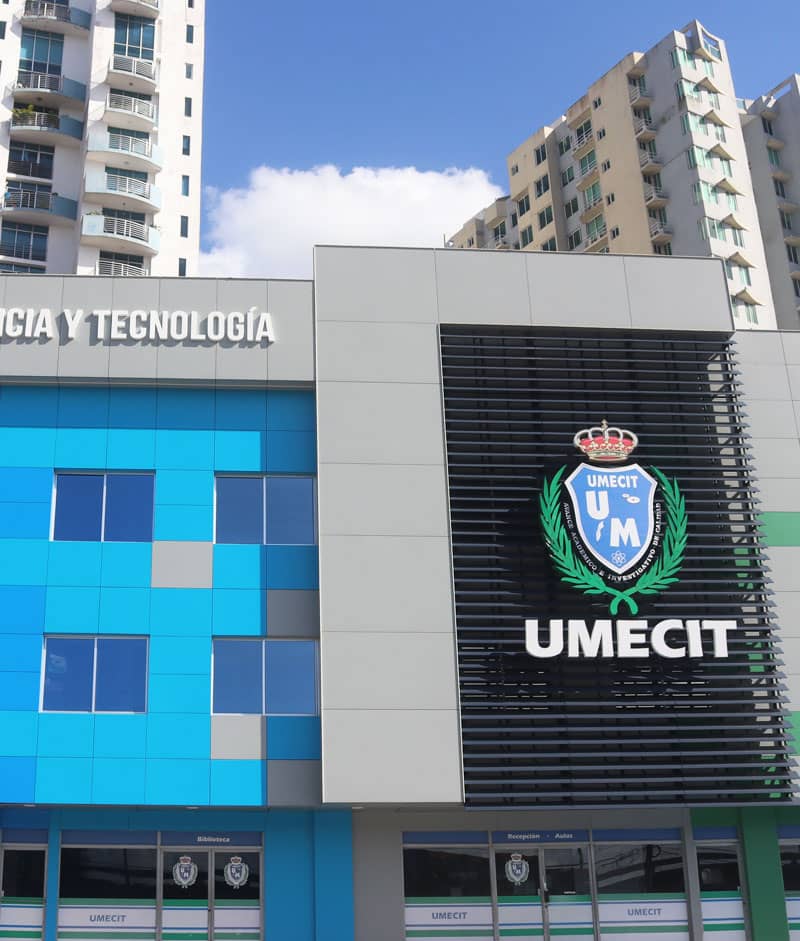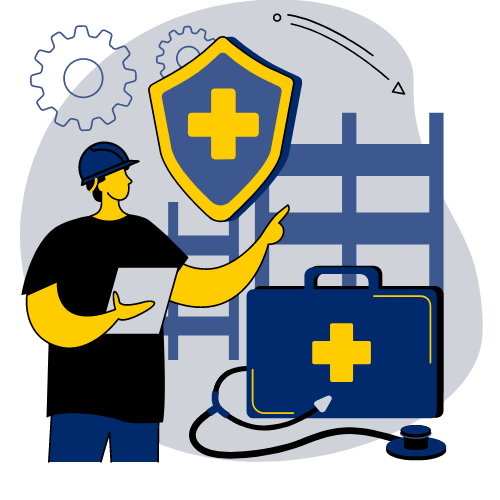“WORK HEALTH”
At the UMECIT University, the Occupational Health Research Seedbed emerges as an epicenter of knowledge, where the exploration and understanding of the intricate relationships between work and health take center stage. In this space, the importance of basing research and practices on solid conceptual and theoretical foundations becomes evident.
Occupational health, beyond being a practical discipline, stands as a field in constant dialogue with theories that shed light on the complex frameworks that define the experience of workers in their work environments.
At the heart of this seedbed lies an unwavering commitment to the construction and expansion of theoretical knowledge in occupational health. From occupational epidemiology that unravels patterns of work-related illness to occupational psychology that addresses emotional complexities in the workplace, each concept is a key piece in the puzzle that seeks to understand and transform working conditions.



A detailed understanding of labor law, in this context, not only provides a legal framework, but also opens doors to innovative strategies that seek to improve occupational safety and health.
This seedbed stands as a beacon that guides students towards conceptual mastery, seeking not only to address problems immediately, but also to anticipate and prevent future challenges.
In this space, theoretical knowledge is not just a tool, but the lens through which tangible solutions are examined, interpreted, and proposed for the complexities inherent in the relationship between work and health.
Thus, the Occupational Health Research Seedbed is presented as a space where theories and practice merge to promote understanding and continuous improvement in work environments.
“WORK HEALTH”
Development of Specialized Knowledge
Provide students of the Bachelor of Occupational Health with a unique opportunity to develop specialized knowledge in the field of occupational health. It seeks to promote a deep understanding of the factors that affect the health of workers, from physical conditions to psychosocial aspects.
Generation of Scientific Evidence
Promote scientific research that generates solid evidence on working conditions and their impact on health. This involves the design and development of studies that address specific problems, thus providing relevant information for making informed decisions in the field of occupational health.
Application of Results in the Work Environment
Guide research towards the practical application of its results. The projects developed in the hotbed will seek not only to understand the problems, but also to propose concrete and applicable solutions that contribute to improving health and well-being in work environments.
“WORK HEALTH”
Occupational Epidemiology
Occupational epidemiology stands as an essential tool to unravel the complex interrelationships between work and health. Through the meticulous study of disease patterns linked to the work environment, this discipline allows not only to identify specific incidents, but also to understand how they affect particular work populations. By analyzing the distribution of occupational diseases and injuries, occupational epidemiology provides a scientific basis for designing prevention strategies and specific health policies, addressing not only the immediate consequences, but also the long-term trends that affect the health of workers.
Work Psychology: Work psychology delves into the complex territories of the mind in the work environment, recognizing the importance of psychological factors in the health and performance of workers. From stress management to promoting emotional well-being, this discipline offers a deep understanding of how emotional aspects impact quality of life at work. By exploring these aspects, work psychology not only identifies challenges but also proposes effective strategies to improve employees' mental health and, therefore, their productivity and job satisfaction.
Labor Law and Occupational Health
The analysis of labor law in the context of occupational health is an essential pillar to guarantee the effective implementation of preventive and safety measures. The intersection between labor law and occupational health reveals the critical importance of understanding how labor regulations and policies directly affect the adoption and effectiveness of occupational health and safety measures. This approach not only identifies potential legal barriers, but also suggests ways to align work practices with legal standards, thereby promoting safer and healthier work environments.


BIBLIOGRAPHY
- Hughes, P., & Ferrett, E. (2015). Introduction to Health and Safety at Work.
- Beatty, J.F., Samuelson, S.S., & Bredeson, D. (2020). Labor Law: A Basic Guide to the National Labor Relations Act. Bloomberg Law.
- Creswell, J. W. (2014). Research Design: Qualitative, Quantitative, and Mixed Methods Approaches (4th ed.). Sage Publications.
- Leka, S., & Houdmont, J. (2010). Occupational Health Psychology. Wiley-Blackwell.
- Lewis, D., & Sargeant, M. (2009). Employment Law: The Essentials. Pearson.
- Sekaran, U., & Bougie, R. (2016). Research Methods for Business: A Skill-Building Approach (7th ed.). Wiley.
- Quick, J.C., & Tetrick, L.E. (2003). Handbook of Occupational Health Psychology. American Psychological Association.
WHICH ARE IN THE EXECUTION PROCESS:
Evaluation of the Impact of Wellness Programs on Work Performance
This project seeks not only to measure the effectiveness of wellness programs, but also to understand how they directly impact the work performance and physical and mental health of employees. The results of this evaluation will not only inform the effectiveness of existing programs, but also propose improvements based on a deep understanding of their impact.
Analysis of Psychosocial Risks in Panamanian educational institutions
By targeting particular employment sectors, this project delves into the identification and analysis of psychosocial risks. The goal is to not only highlight the specific emotional challenges faced by workers in these sectors, but also to propose concrete strategies to mitigate those risks and foster healthier work environments.
Impact of New Technologies on Occupational Health
Investigating the impact of new technologies on the health and well-being of workers is essential in a constantly evolving world of work. This project delves into the analysis of how technologies such as remote work and artificial intelligence affect occupational health, proposing practical guidelines to integrate these technologies in a healthy and sustainable way in modern work environments.

RESPONSIBLE FOR THE SEEDBED
Seedbed leader student
Contact: juanrozero@gmail.com
Lead teacher
Contact: arauzmaruja@gmail.com
Lead teacher
Contact: amelithcando0389@gmail.com
